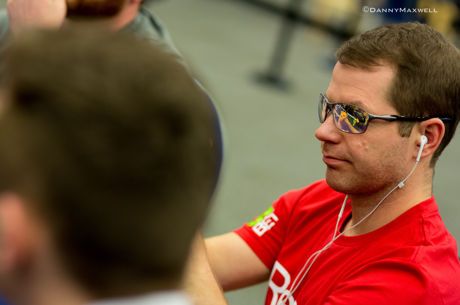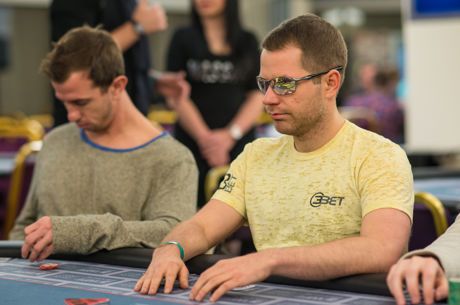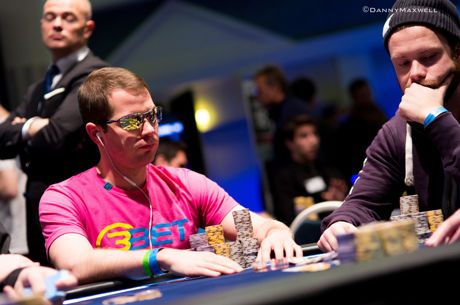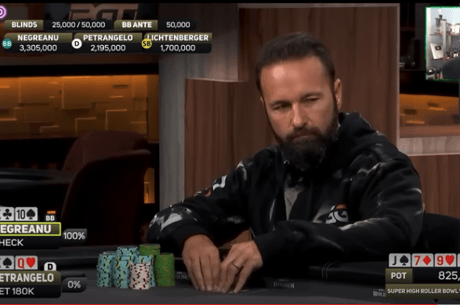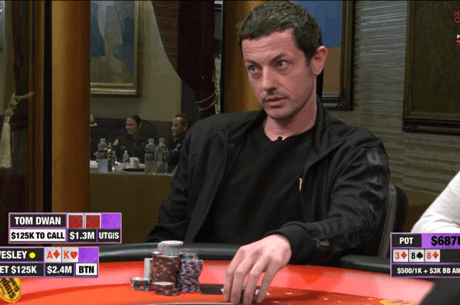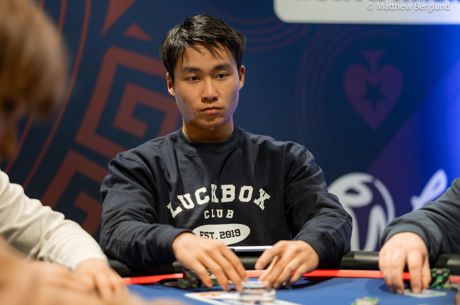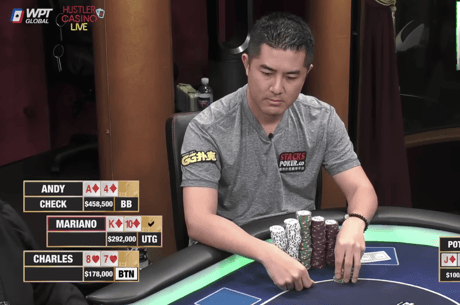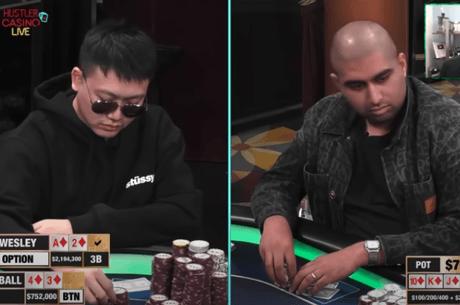Jonathan Little on How to Play a Marginal Made Poker Hand
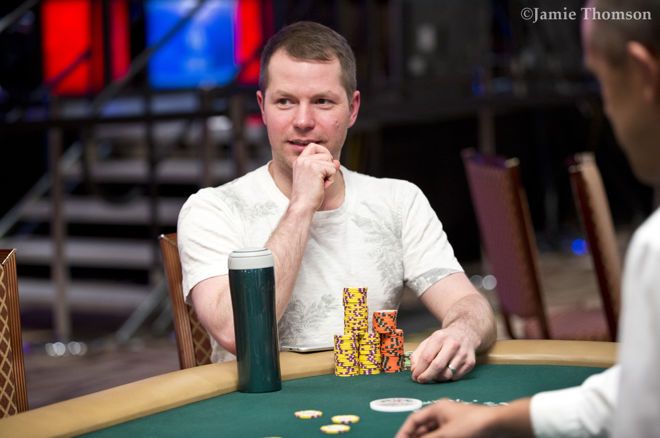
In August 2019, I was fortunate enough to take down the Seminole Hard Rock Poker Open Event #15: $2,200 NLH 8-Handed, besting a field of 211 runners and capturing a $97,160 top prize. Two weeks ago, I talked about a big hand on how to best play ace-king against a tight-aggressive (TAG) opponent, which ultimately led to me firing a second bullet, and last week I looked at how playing a draw in a multiway pot can lead to really tough spots.
In my latest hand from that tournament, I am going to talk about how to play a marginal made hand. In this one, I play a three-bet pot and flop middle pair in position. After facing a flop bet, I have to decide what to do on the turn and river. Do you check and try and get to showdown or go for the bluff? Here��s how it went down.
The blinds were 2,500/5,000/5,000 and players were already in the money when action folded to be in the cutoff. I was sitting with 200K (40 BBs) and raised to 11,000 holding the Q?J?. An older player in the big blind was sitting with a similar stack and opted to three-bet to 30,000.
"You shouldn��t make broad assumptions. Big assumptions can lead to substantial errors."
A lot of older players tend to be on the tight side, especially when three-betting from the big blind, but that said, I don��t know if this particular player fits that mold. It��s important to realize who your specific player is, but if you don��t know, you shouldn��t make broad assumptions. Big assumptions can lead to substantial errors.
I default to the GTO strategy, which is not to fold good hands that flop well, so I call to see a A?J?5? flop. My opponent has the range and nut advantage, so he should be betting frequently and small. Turns out he does bet small by making it 20,000.
With no real reads, I call with the intention of folding the turn whenever I don��t pick up more equity. The 7? turn doesn��t do me any favors, but my opponent actually checks. Now, should I bet? The answer is obviously no because if my opponent is competent, he could easily be checking an ace, and what sort of hands could he have that he��d fold out?
I do check and the 2? appears on the river. My opponent checks again and I have to decide if I want to bet here. He could have kings or queens that would fold to a river bet or jam, but on the flip side, my hand has plenty of showdown value.
What if I have a hand like queen-ten? I would likely bet small on the turn, like 30K, and then jam the river. That��s also how I��d play my good aces and made hands, meaning I��d play my made hands and bluffs in the same manner.
Anyway, it went check-check and my opponent mucked, meaning I won with my pair of jacks.
For a more thorough breakdown of this hand, check out the following video:
Jonathan Little is a professional poker player and author with over $7,000,000 in live tournament earnings. He writes a weekly educational blog and hosts a podcast at JonathanLittlePoker.com. Sign up to learn poker from Jonathan for free at PokerCoaching.com. You can follow him on Twitter @JonathanLittle.

